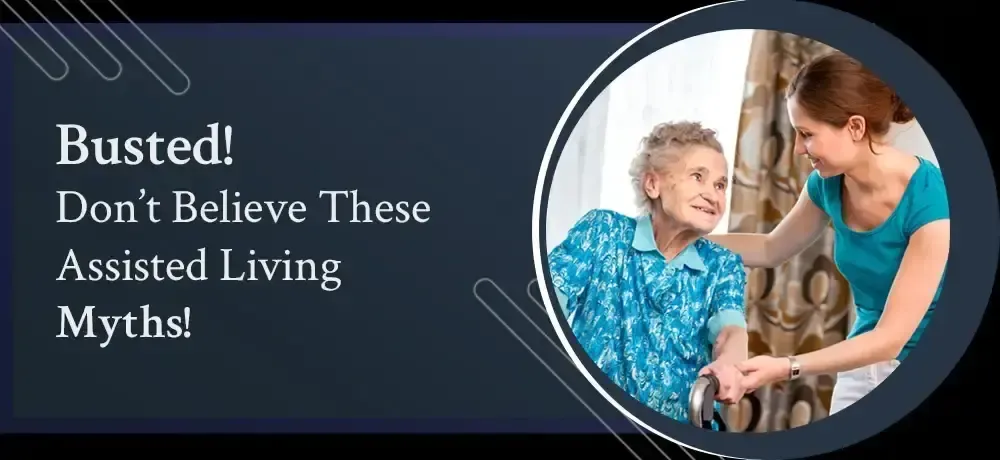Busted! Don’t Believe These Assisted Living Myths!
Busted! Don’t Believe These Assisted Living Myths!

Most of our aged population plans to stay at home for as long as possible, despite changes in health, mobility, or cognition. Initially, this was a challenge, but with the expansion of home care services in recent years, it’s easy to help aging loved ones live independently at home. Many home care services provide a full range of safe and affordable solutions benefiting elderly loved ones while in a familiar environment. They ensure your loved ones receive timely support and care with an extra set of hands and dedicated medical services as needed. They also make sure your loved one is as comfortable as possible and essential chores around the house are taken care of.
Despite the benefits that home care services offer, there is a whole lot of misinformation about them. Believing in these myths could dissuade you from using the best option for you or your loved ones. To help you steer clear of these misconceptions, The Retreat at Church Ranch has debunked three of the most widely believed myths about assisted living.
Myth 1: Assisted living is like a nursing home
Nursing homes are known as a “medical” model, and assisted living is known as a “social” model. The two are very different, with nursing homes caring for extremely ill individuals and assisted living professionals caring for individuals with a lot to live for and the ability to live fully engaged every day.
Myth 2: Hospice care means their loved ones are going to die soon
That’s not always true. We’ve seen residents under hospice care improve their health and come off of hospice care multiple times. Hospice care increases the services an individual receives, which can greatly improve that person’s health.
Myth 3: When a person moves into an assisted living community, their life is going to get worse, not better
At The Retreat at Church Ranch, we almost always see an improvement in a person’s health, attitude, and social engagement. We’ve seen loving relationships form and have even seen residents get married and live very happily for years!
If you’re looking to steer clear of more myths like these, reach out to The Retreat at Church Ranch. We are a Westminster retirement, assisted living, and care home that offers quality services, including assistance with daily activities, personal care, housekeeping, freshly cooked meals, medication administration, and so on. Our staff are very well trained and equipped, and we are able to cater these services to clients across Westminster, Arvada, Broomfield, Boulder, Longmont, Erie, Thornton, Denver, Louisville, and the surrounding areas.
For a complete list of our services, please click here. If you have any questions about assisted living or elder care, we’d love to hear from you. Please contact us here.



